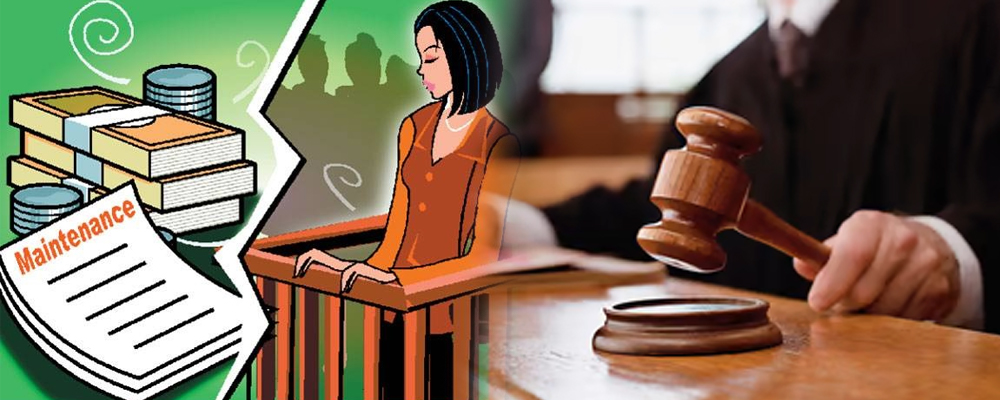Whenever a couple seeks divorce for any reason, there are multiple issues that arise post-divorce between the parties. Due to this reason maintenance is an important issue for which the party usually seeks to take legal help.
There are certain cases seen where usually women are incapable of maintaining themselves or ruining their livelihood, so in that case, they seek to ask their husbands for the maintenance money.
Maintenance under section 125 of the Code of criminal procedure
Maintenance refers to a sum of money given to a dependent individual, such as a wife, child, or parent, to enable them to support themselves financially. It is also described as a term that “includes provision for food, clothing, residence and medical attendance and treatment” in Section 2(b) of the Maintenance and Welfare of Parents and Senior Citizen Act.
According to section 125 of the Code Of Criminal Procedure, The personal laws of the religion to which the parties belong govern these maintenance issues. Although it is relevant to determine the legality of a marriage and cannot be completely excluded, this section applies to all religions and the personal law, it has no legal authority. Section 125 does not conflict with any provisions of any personal maintenance law. If some maintenance has already been granted under personal law, the magistrate may take that into account when determining the allowance to be paid. Otherwise, it is distinct from the parties’ private laws and is true of a secular nature.
Need A Legal Advice
The internet is not a lawyer and neither are you. Talk to a real lawyer about your legal issue

The ruling by Gauhati High Court
According to a recent ruling by the Gauhati High Court, a wife’s right to receive maintenance from her husband under Section 125 of the Code of Criminal Procedure (CrPC) is a statutory right, and the husband cannot absolve himself of responsibility by entering into a different agreement.
The High Court stated that such an agreement would be null and void because it is against public policy.
Single-judge Justice Rumi Kumari Phukan stated, establishing a contrary agreement, that the husband cannot barter, eliminate, or negate the wife’s legal right to maintenance. Additionally, it was decided that a contract in which the wife waived her right to request maintenance was invalid because it went against public policy,
It follows that the statutory liability under Section 125 is distinct from the liability under any other law. Accordingly, giving effect to an agreement that supersedes this legal provision—Section 125 of the CrPC—would amount to not only recognizing something against public policy but also to negate it, the Court stated.
The husband and his parents then attempted to settle the case after the wife filed a criminal complaint. The wife allegedly consented, as part of the settlement, for her parents to cover her expenses while she was living at her parents’ house.
She claimed that the husband was supposed to have come home to take her back to the marital home, but he never did, so she sought maintenance for herself while she finished her undergraduate degree.
The wife, however, was allegedly living an adulterous life, according to the husband. He used the wife’s private journal, in which she admitted to harboring feelings for another man before they got married. The judge further noted that despite the husband’s admission that his legally married wife was an unemployed college student, his plea showed that he had not bothered to support her.
The bench later came to the following conclusion:
“According to the provisions of the Act, the pleadings, the evidence on file, and the legal proposition, it can be held that the husband has not been able to prove that he has no sufficient means to discharge his obligation and that he did not neglect or refuse to maintain his wife, while the wife has been able to prove that there is neglect on his part to maintain his legally married wife.”





 Talk to a Lawyer
Talk to a Lawyer